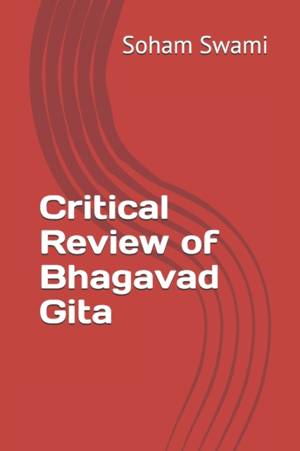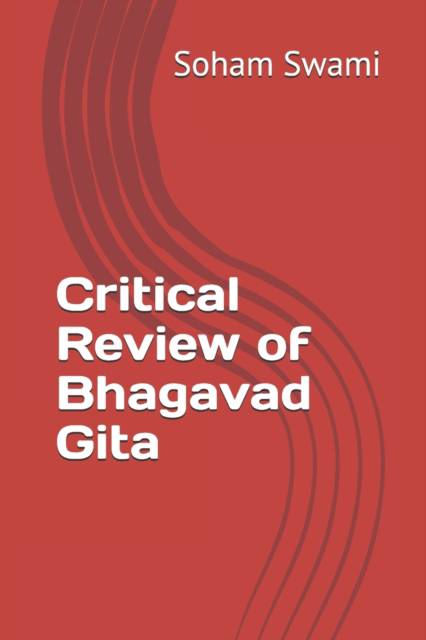
- Retrait gratuit dans votre magasin Club
- 7.000.000 titres dans notre catalogue
- Payer en toute sécurité
- Toujours un magasin près de chez vous
- Retrait gratuit dans votre magasin Club
- 7.000.0000 titres dans notre catalogue
- Payer en toute sécurité
- Toujours un magasin près de chez vous
Description
Bhagavad Gita, the song of Bhagavad, having emanated from the mouth of Lord Krishna is considered sacrosanct by Hindus. Though scholars in their commentaries and glosses had often differed in their interpretations of the Gita verses and opposed each other, but none doubted its infallibility, and therefore its inviolability had never been challenged. Hence, efforts to review the book was considered profane and barred by fear of desecration. Rationality, though believed to be a rare human attribute, is not entirely unknown in the spiritual domain. Instead of suppressing the truth and killing doubts with imaginary fear of divine wrath, the Advaitin monk Paramhangsa Soham Swami penned Bhagavadgeetar shamolochona, a critique of Bhagavad Gita, in 1918 in his native tongue Bengali, which was published posthumously on his first death anniversary on 6th December, 1919. The English translation of the book, Critical Review of Bhagavad Gita, is being published in the centenary year. The most popular and widely-read book that claims to contain the essence of Hindu thought is Bhagavad Gita. It is venerated by all sections of Hindus and is universally referred to as a mine of infallible knowledge for establishing the veracity of diverse sectarian beliefs in the Hindu society. But is Bhagavad Gita worth all the hype? An impartial evaluation will reveal that the book has been skilfully marketed as a panacea for all real life problems and spiritual enlightenment. The Critical Review of Bhagavad Gita is unique because it has not only highlighted the fallacies and inconsistencies, but has also revealed how Gita has diverted from the concepts of the Vedas and Upanishads that form the real cornerstone of Hinduism. About the Author: Paramhangsa Soham Swami (1858-1918) was a follower of the Indian tradition of non-dualism or Advaita Vedanta. Known as Shyamakanta Bandopadhyay (Banerjee) in his pre-monastic days, he was renowned for his extraordinary physical strength and exemplary courage. After graduating from Dacca College, he chose an unusual vocation - wrestling with wild tigers. He was revered by Indians and Europeans as Professor Banerjee, the first tiger tamer of India. However, at the age of 41, renouncing wealth, family and fame, he became an ascetic. Under the tutelage of his master Nabin Chandra Chakroborty alias Tibbatibaba he discovered the Absolute Truth.
Spécifications
Parties prenantes
- Auteur(s) :
- Traducteur(s):
- Editeur:
Contenu
- Nombre de pages :
- 202
- Langue:
- Anglais
Caractéristiques
- EAN:
- 9788193722930
- Date de parution :
- 25-11-19
- Format:
- Livre broché
- Format numérique:
- Trade paperback (VS)
- Dimensions :
- 152 mm x 229 mm
- Poids :
- 303 g

Les avis
Nous publions uniquement les avis qui respectent les conditions requises. Consultez nos conditions pour les avis.






